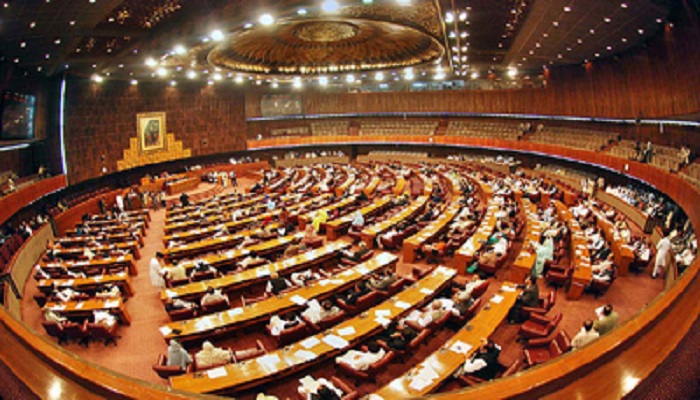ISLAMABAD: The induction ceremony for newly elected Members of the National Assembly (MNAs) is anticipated to occur during the final week of this month, as the inaugural session of the National Assembly is set to convene on February 29.
The opening session will be chaired by the Speaker of the National Assembly, Raja Pervaiz Ashraf, who will administer the oath to the recently elected MNAs.
According to regulations, successful candidates must disclose their election expenses within ten days of their victory; failure to comply will result in the withholding of their official notification of success, which is typically issued within 14 days of their win. Subsequently, the allocation of 60 seats for women and 10 for non-Muslim representatives will occur.
[embedpost slug=”ecp-announces-victory-of-nawaz-shehbaz-maryam-hamza-tarar/”]
Following the announcement of the official election results, independent MNAs will have a three-day period to affiliate with any parliamentary party of their choosing.
In accordance with Article 21 of the Constitution of the Islamic Republic of Pakistan, the National Assembly session must be convened within 21 days of the elections, although it can be summoned earlier at the discretion of the authorities.
As stipulated in Section 91(2) of the Constitution, the president is obligated to call for the National Assembly session within 21 days following the official declaration of election results or the issuance of their notification.
Once the Speaker and Deputy Speaker are elected, the process of selecting the new Prime Minister will commence through a secret ballot. The newly elected Prime Minister is anticipated to commence their duties in the initial week of March.
For the election of the Prime Minister, the assembly will be divided into two groups, with votes counted accordingly based on this division.
As per Section 91(4) of the Constitution, the Prime Minister “shall be elected by the votes of the majority of the total membership of the National Assembly.
If no member secures such a majority in the first poll, a second poll shall be conducted between the members with the two highest numbers of votes in the first poll, and the member obtaining a majority of votes of the members present and voting shall be declared elected as Prime Minister.
Furthermore, if the number of votes secured by two or more members with the highest number of votes is equal, additional polls shall be held until one of them secures a majority of votes of the members present and voting.”



















